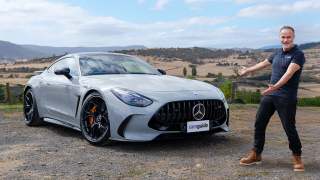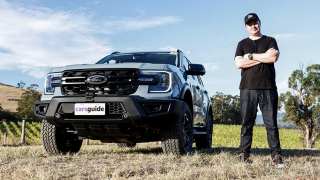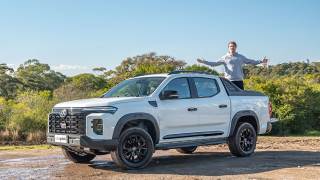
Game changing battery tracing technology: 2025 Volvo EX90 launches 'battery passport' ahead of 2027 European mandate
- Volvo EX90
- Volvo EX30
- Volvo EX90 2023
- Volvo News
- Volvo SUV Range
- SUV
- Electric Cars
- Volvo
- Industry news
- Showroom News

Volvo has developed the first battery passport, a way to trace the materials, composition, recycled content, carbon emissions and origin of its batteries.
The game-changing blockchain tracing technology has been in the works for over five years in partnership with UK company Circulor.
It is important because Volvo is a step ahead of other manufacturers such as Tesla, BYD and Ford, all of which will need to supply battery passports to sell electric cars in Europe from February 2027.
Read more about Volvo EX90
- "Everyone's saying the shine's come off it, but our product strategy is clear": Volvo laser-focused on pure-electric car future despite Ford, General Motors, Mercedes-Benz and others dialing back EV plans
- 2025 Volvo XC40 and C40 Recharge electric cars get renamed to EX40 and EC40 for update as Swedish brand stays on target to be fully EV in Australia by 2026
- Volvo EX30 2024 review
Volvo's EX90 electric large SUV will launch the technology and it will steadily rolled out to all of Volvo’s electric cars including EX30, EX40 and future products. Also under the Geely umbrella is Polestar, the electric-only brand already using blockchain technology to trace its materials.
Volvo has set a global date of 2030 to go fully electric while Australia will be ahead of the curve, selling EVs exclusively from 2026.
Owners will be able to scan a QR code for a simplified version of the passport. Also included is a battery health assessment function that will be crucial for residual values.
Regulators get access to more detailed information from the passport. This includes all aspects that supplier Circulor traces, including battery materials from mines, through refining processes, energy mixes being used by suppliers, shipping, to eventually ending up in a car for a total emissions figure.

In addition to keeping track of emissions throughout production, blockchain technology will also shed light on which suppliers are being used and if they’ve committed human rights violations.
"Car manufacturing has never been about which rock went into which component and which got connected to which car," Circulor CEO Douglas Johnson-Poensgen told Reuters. "It's taken a long time to figure that out," she added.








Comments